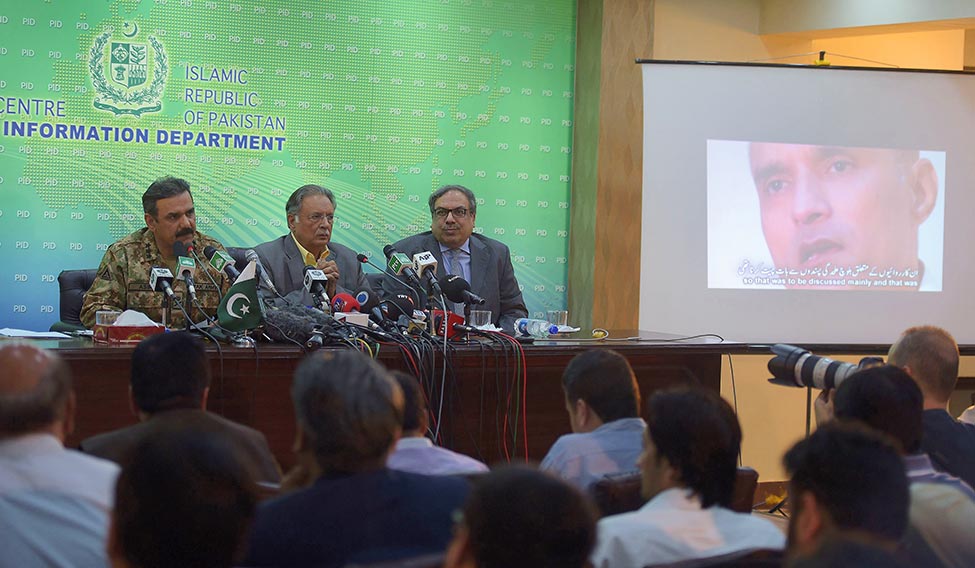In his early 20s, when Kulbhushan Jadhav was commissioned into the Indian Navy, one of the first to know about it was his best friend Tulsidas Pawar. They had recently gone on trips to Jammu and Kashmir and Rajasthan with their friends. Now, Jadhav was leaving and Pawar wanted to start his own business. Their days together had come to an end.
Some years later, when Jadhav went to Lower Parel in Mumbai to meet his old friends, he told Pawar about his own plans to start a business. After retiring from the Navy as commander in 2001, Jadhav apparently set up a cargo business in Iran’s port city of Chabahar.
About 15 years later, on March 3, 2016, Pakistan said it had detained Jadhav, 46, and that he was using his business as a cover for working as a spy for India’s Research and Analysis Wing (R&AW). In the past 12 months, New Delhi submitted 13 note verbales to Islamabad seeking consular access, which would be the first step in establishing his identity and providing him legal aid. It was not granted.
On April 10 this year, Pakistan army chief General Qamar Javed Bajwa said Jadhav had been given the death sentence in a secret trial for “espionage” and “sabotage” in Balochistan and Karachi. Pakistan also produced a passport of a Hussein Mubarak Patel, which Jadhav had allegedly obtained from Pune in 2003.
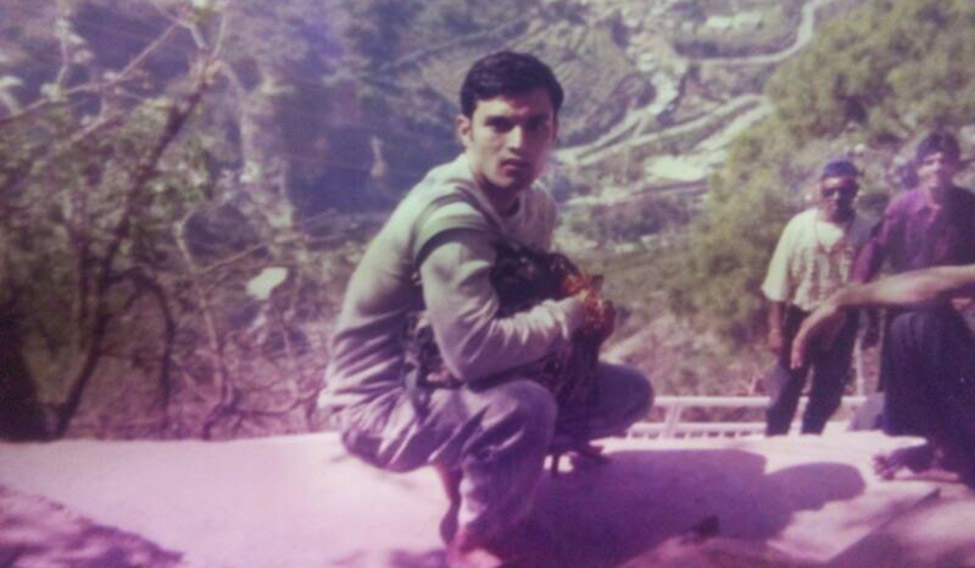 An old photo of Jadhav.
An old photo of Jadhav.
When the news broke, Pawar was heartbroken. He took to the streets, telling everyone that his friend was innocent. Soon, many voices across the country joined his. “Kulbhushan’s business plans were not sudden or new,” said Pawar. “He had discussed it with me and had even said that I could join him. Then, he went to sea and slowly we became engrossed in our lives. I run a footwear business today. Jadhav got married and, within a few years, they moved to Powai.”
On hearing about the death sentence, Jadhav’s family—wife, mother, son Shubhankar and daughter Bhairavi—left their flat, on the 5th floor of Silver Oak apartments in Powai, for an unrevealed location. They had no idea about the trial and the news had rattled them. They wanted to avoid the media.
“He was ‘Bhushan’ to his friends and ‘Bhushan dada’ to the younger ones,” recalled Pawar. “He was such a gentle and helpful person. Once, he had come to Delisle Road on holiday and saw an old beggar woman on the footpath. She had suffered a bad injury on her forehead and no one was willing to help her. But, Bhushan lifted her in his arms and took her to hospital in his car.”
Pawar’s wife, Vandana, was empathetic. “You know my husband and Jadhav go back 25 years. We virtually lived together. Of course, he [Pawar] is in pain today,” she said, sifting through old photographs.
Shubrato Mukherjee, one of Jadhav’s friends from the National Defence Academy, recounted his undying patriotism. “Bhushan was an example of integrity and patriotism,” he said. “Apart from being a good sportsman [he played football], he was a good motivator. He would always tell his friends to join the Army and serve the country.”
The fight for justice was in Jadhav’s blood. His father, Sudhir, and his uncle Subhash were assistant commissioners of police in Mumbai. Subhash was cautious while speaking to THE WEEK. As a police officer, he knew what Islamabad and its Inter-Services Intelligence could do. “No, I don’t want to come before the media,” he said. “I have faith in the Indian government and its assurances. I don’t want to talk about his occupation, but all I can say is that he did no wrong. So, why should he be punished?”
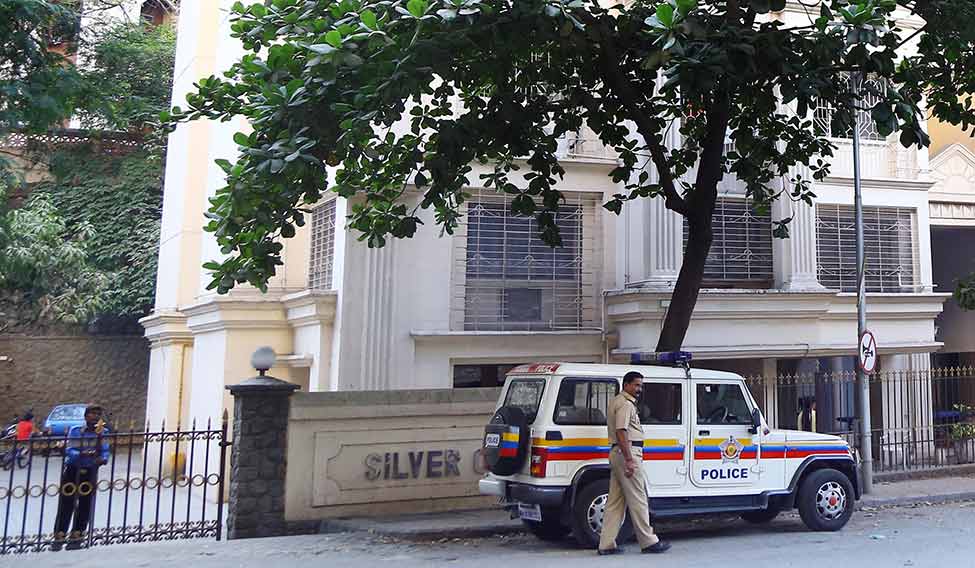 Home truths: Policemen at Jadhav’s residence in Powai, Mumbai | Sameer Joshi
Home truths: Policemen at Jadhav’s residence in Powai, Mumbai | Sameer Joshi
While the Indian media and people demanded Jadhav’s release, across the border, sentiments were quite different. “This is good news,” retired lieutenant colonel Bashir Wali, former director general of Pakistan’s intelligence bureau, told THE WEEK on telephone from Islamabad. “I am happy; we have finally done what was required. You must not forget that I am a solider and any act that threatens our national security and attempts to destabilise the country must be punished severely.”
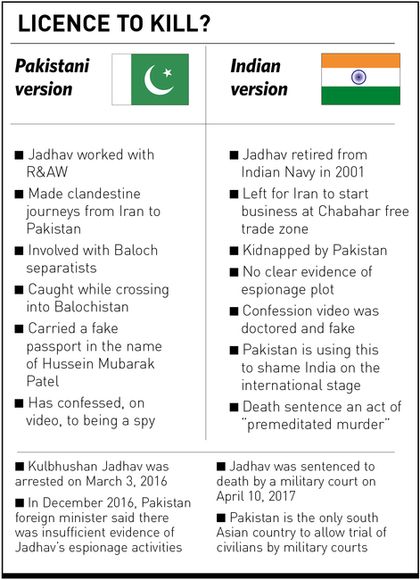
He said Pakistan’s intelligence agencies had been on Jadhav’s trail for more than a year, and that it was because of his brazen ways that he was caught. “Can you believe it, he came right up to Balochistan,” Wali exclaimed. “He was not a smalltime spy, but an agent handler who built his assets in Balochistan, where he was fuelling a separatist agitation to destabilise the ambitious China-Pakistan Economic Corridor. Other than sectarian violence, he was behind terror attacks in Balochistan and Karachi. The Indian system has used him and, if we had an iota of doubt, we would not have pronounced the judgment so fast. We have enough material evidence on him.”
On April 12, the Pakistan army also arrested Karachi-based don Uzair Baloch on espionage charges and said he was helping Jadhav’s “spy” work.
Wali, who has handled many such cases, said Jadhav’s case had given Islamabad an advantage over New Delhi. “The question of consular access does not arise,” he said. “Why should we give it? He is not an ordinary prisoner of war. He was a spy and has committed the gravest of offences.”
Pakistan’s army and intelligence establishment seem to have thrown away the rulebook, including the Geneva Convention and human rights protocols.
Former R&AW chief Vikram Sood told THE WEEK that Wali’s claims were a “cock and bull story”. “Will any sane intelligence agency in the world send its own spies to another country with his real name and passport in his pocket?” he asked. “So, they [could have] picked him up from somewhere else and put him up here. Basically, the message Pakistan wants to convey is that we should talk to them. They are putting pressure on us to come to the talking table to discuss everything, including Kashmir. But we will not do that. It is a question of who blinks first.”
The defence ministry has been treating it as a diplomatic issue. Said a senior defence ministry official: “Kulbhushan is a retired officer and the matter has nothing to do with the defence ministry.”
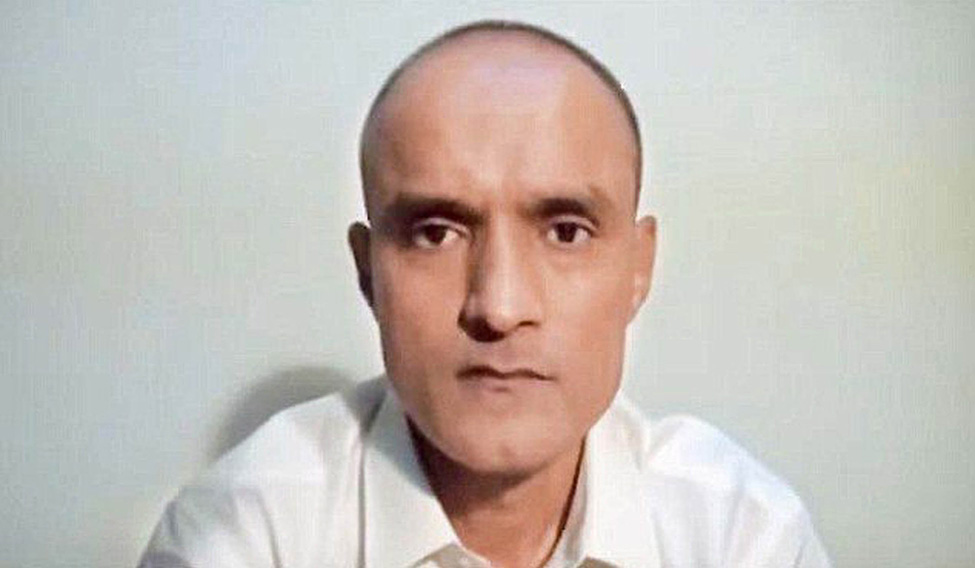 Kulbhushan Jadhav
Kulbhushan Jadhav
External Affairs Minister Sushma Swaraj, however, was more vocal, calling the prosecution farcical and an act of “premeditated murder”. Home Minister Rajnath Singh assured Parliament that the government would do whatever was possible. Cutting across party lines, several leaders such as Congress veteran Mallikarjun Kharge and All India Majilis-e-Ittehadul Muslimeen president Asaduddin Owaisi condemned the death sentence.
There was anger on social media, too. Manas Pagar, a youth from Pune, created the hashtags #KulbhushanJadhav and #SaveKulbhushan, which were trending within hours. He also created a dedicated Facebook page in support of Jadhav. “The real success would be when Kulbhushan comes back to India,” he said.
Jatin Desai, general secretary of the Pakistan-India People’s Forum for Peace and Democracy, said it was unfortunate that the Indian government didn’t have intelligence on the commencement of the trial. The government, he said, made a mistake by accepting Jadhav’s passport details and nationality on the very first day. It should have waited and only pressed for consular access,” he said.
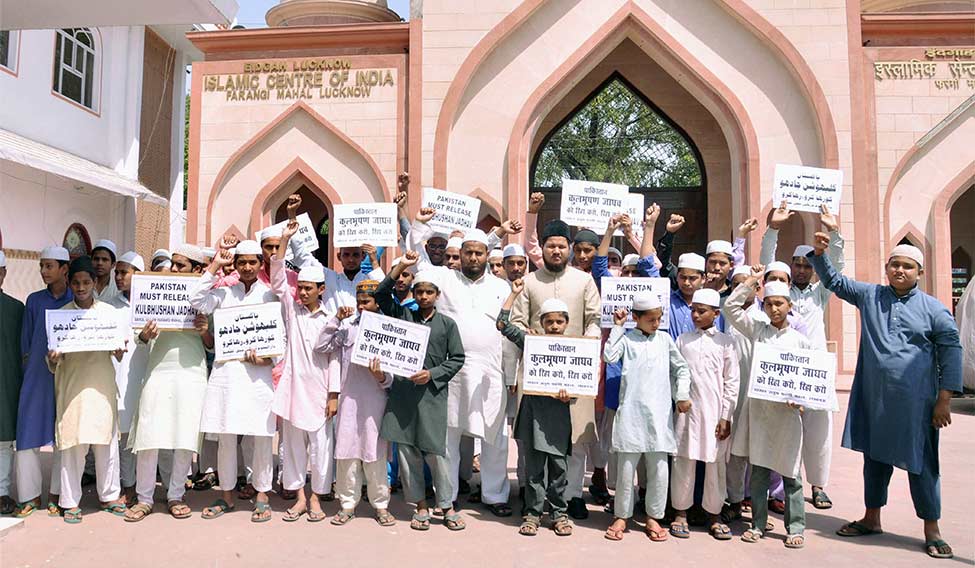 Taking a stand: Students and teachers protest Jadhav’s sentence at the Islamic Centre of India in Lucknow | PTI
Taking a stand: Students and teachers protest Jadhav’s sentence at the Islamic Centre of India in Lucknow | PTI
But the arrow had left the bow and there has been strong anti-Pakistan sentiment in India over the past few days. But, once again, the question is whether India can sever all ties with Pakistan, including people to people contact. If India wants Jadhav to be released, it would have to strike a compromise with its neighbour. The complexity of the situation can be gauged from the fact that while people held dharnas across the country, protesting Jadhav’s sentence, New Delhi hosted a track two dialogue with Pakistan, albeit privately. The participants included several retired army personnel and political leaders from both countries.
Meanwhile, many in the Indian media have asked why, while Ajmal Kasab, the accused in the 26/11 attacks on Mumbai, was given a free and fair trial in India, another alleged R&AW spy, Sarabjit Singh, was assaulted to death after 22 years in a Lahore jail. No one wants a second Sarabjit. And, for Prime Minister Narendra Modi, who began diplomacy with Pakistan on a softer note, that doesn’t seem to be the best way forward.
Pakistani defence minister Khawaja Muhammad Asif said Jadhav could appeal against his death sentence within 60 days. The clock is ticking.



